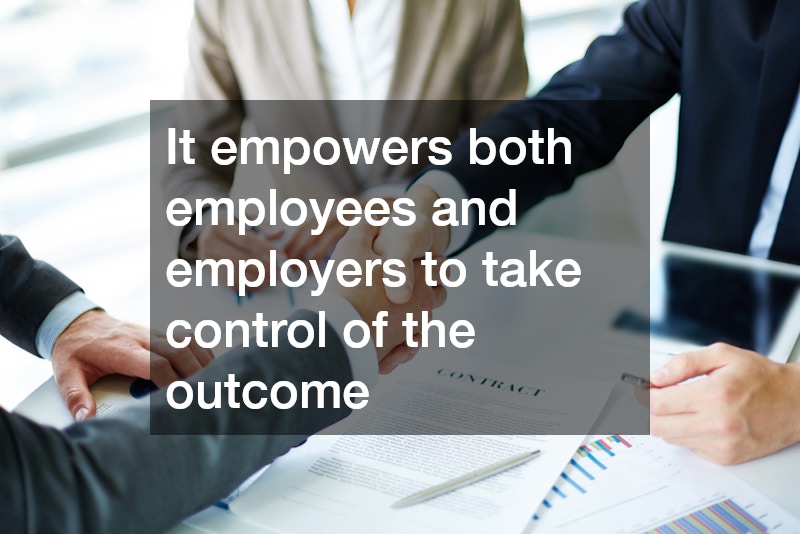Employment disputes can be stressful, costly, and time-consuming for everyone involved. Whether the conflict involves wrongful termination, workplace discrimination, wage disputes, or harassment claims, resolving the matter in court can take months—or even years—and come with significant legal expenses. That’s why many individuals and businesses are turning to mediation employment law as a more efficient and cooperative way to address workplace issues.
Mediation offers a voluntary, confidential process where a neutral third party helps both sides reach a mutually agreeable resolution. In the context of employment law, this approach can reduce costs, preserve professional relationships, and provide a greater sense of control over the outcome.
What Is Mediation in Employment Law?
Mediation employment law refers to using mediation as a dispute resolution tool for workplace-related legal matters. A trained mediator—often with a background in employment law—facilitates discussions between the employee and employer. The mediator does not make decisions but instead guides the conversation, helping each side clarify their needs, explore options, and find common ground.
This process can take place at any stage of an employment law case—before a lawsuit is filed, during pre-trial negotiations, or even while the case is ongoing.
Benefits of Mediation Employment Law
1. Cost Savings
One of the biggest advantages of mediation employment law is its affordability compared to litigation. Court proceedings often involve attorney fees, expert witness costs, and extensive documentation, all of which can add up quickly. Mediation, on the other hand, typically requires fewer billable hours and reduces the need for prolonged legal preparation.
2. Faster Resolution
Litigation can take months or years to resolve. In contrast, mediation sessions are often scheduled within weeks, and many disputes are resolved in a single day. This speed is especially beneficial in mediation employment law cases, where ongoing disputes can disrupt the workplace and cause ongoing stress.
3. Confidentiality
Unlike court cases, which are often part of the public record, mediation employment law is confidential. Both parties can speak freely without fear that their words will be used against them later in court. This privacy can be critical in sensitive employment matters, such as discrimination or harassment claims, where protecting reputations is important.
4. Preserving Relationships
In many employment disputes, especially those involving current employees, maintaining a professional relationship is important. Mediation employment law encourages collaborative problem-solving, reducing hostility and promoting understanding. Even when the employment relationship ends, mediation can allow both sides to part on better terms.
5. More Control Over the Outcome
In court, a judge or jury makes the final decision, and both sides must accept it—even if neither is satisfied. In mediation employment law, the parties themselves create the agreement. This control often leads to more creative and mutually beneficial solutions that a court might not be able to impose.
When Is Mediation Right for an Employment Law Case?
Mediation employment law can be useful in a wide range of disputes, including:
-
Wrongful termination claims
-
Workplace discrimination or harassment cases
-
Wage and hour disputes
-
Retaliation or whistleblower complaints
-
Breach of employment contract matters
Mediation is most effective when both parties are willing to engage in good faith negotiations and are open to compromise. While it may not be suitable for every case—such as those involving severe misconduct—it can be a valuable first step in many employment conflicts.
The Mediation Process in Employment Law Cases
A typical mediation employment law session follows these steps:
-
Opening Statements – The mediator explains the process, and each party shares their perspective without interruption.
-
Discussion and Exploration – The mediator facilitates a conversation to identify underlying concerns and possible areas of agreement.
-
Private Meetings – The mediator may meet separately with each side to discuss confidential issues and explore settlement options.
-
Negotiation – The mediator helps bridge gaps between proposals until an agreement is reached.
-
Final Agreement – If successful, the terms are written and signed, becoming a binding settlement.
Legal Support in Mediation
While mediation is less formal than court, having a legal advocate familiar with mediation employment law can make a big difference. An employment lawyer can:
-
Advise you on your legal rights and potential outcomes
-
Help prepare your case and supporting documents
-
Represent your interests during the mediation session
-
Review and finalize settlement agreements
This ensures that any resolution reached is fair, enforceable, and in your best interest.
Mediation employment law offers a practical, cost-effective, and confidential way to resolve workplace disputes. It empowers both employees and employers to take control of the outcome, often leading to solutions that preserve relationships and avoid the stress of prolonged litigation.
If you’re facing an employment dispute, exploring mediation as an option could save you time, money, and emotional strain. By working with an experienced attorney and a skilled mediator, you can navigate the process effectively and reach a resolution that works for everyone involved.

